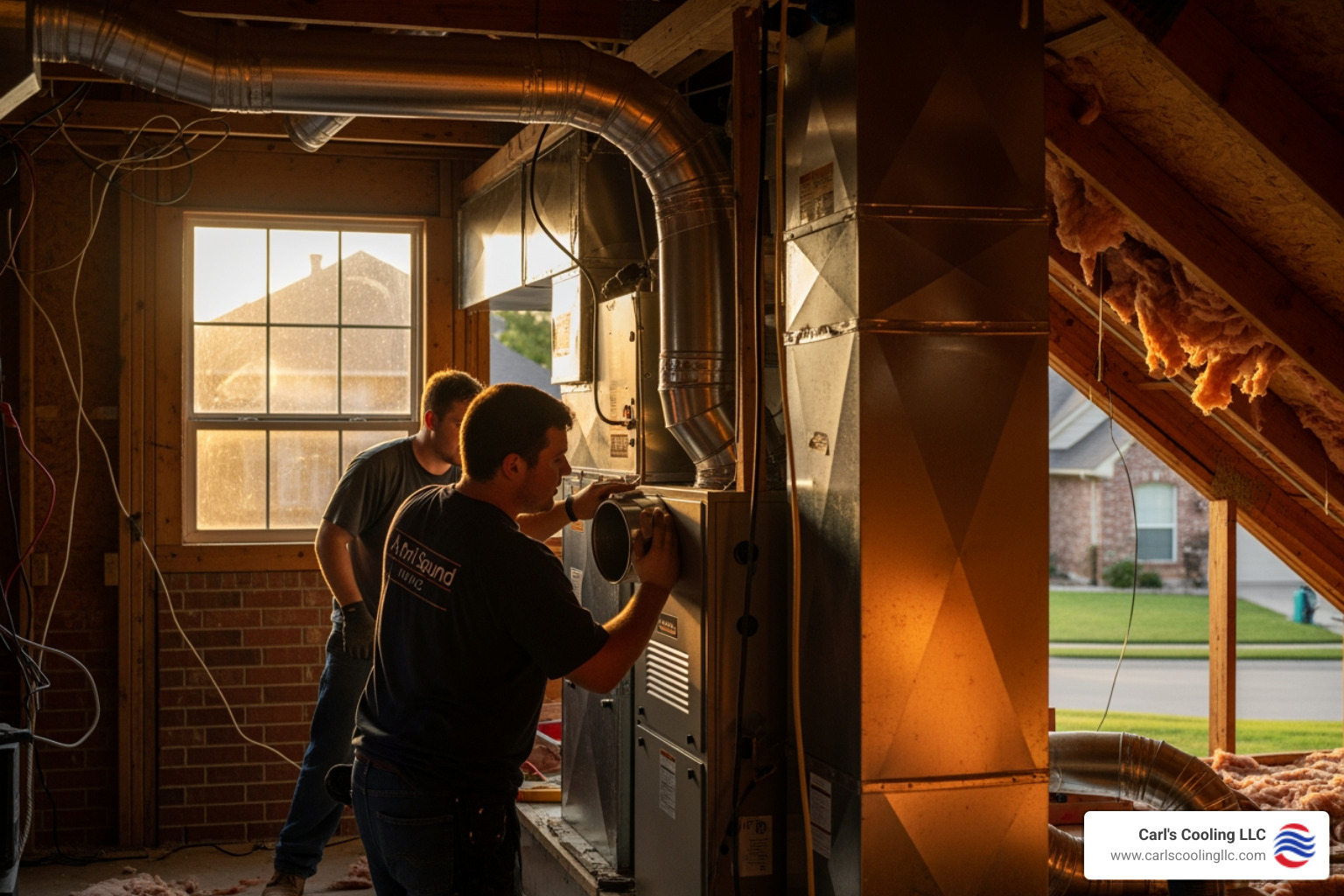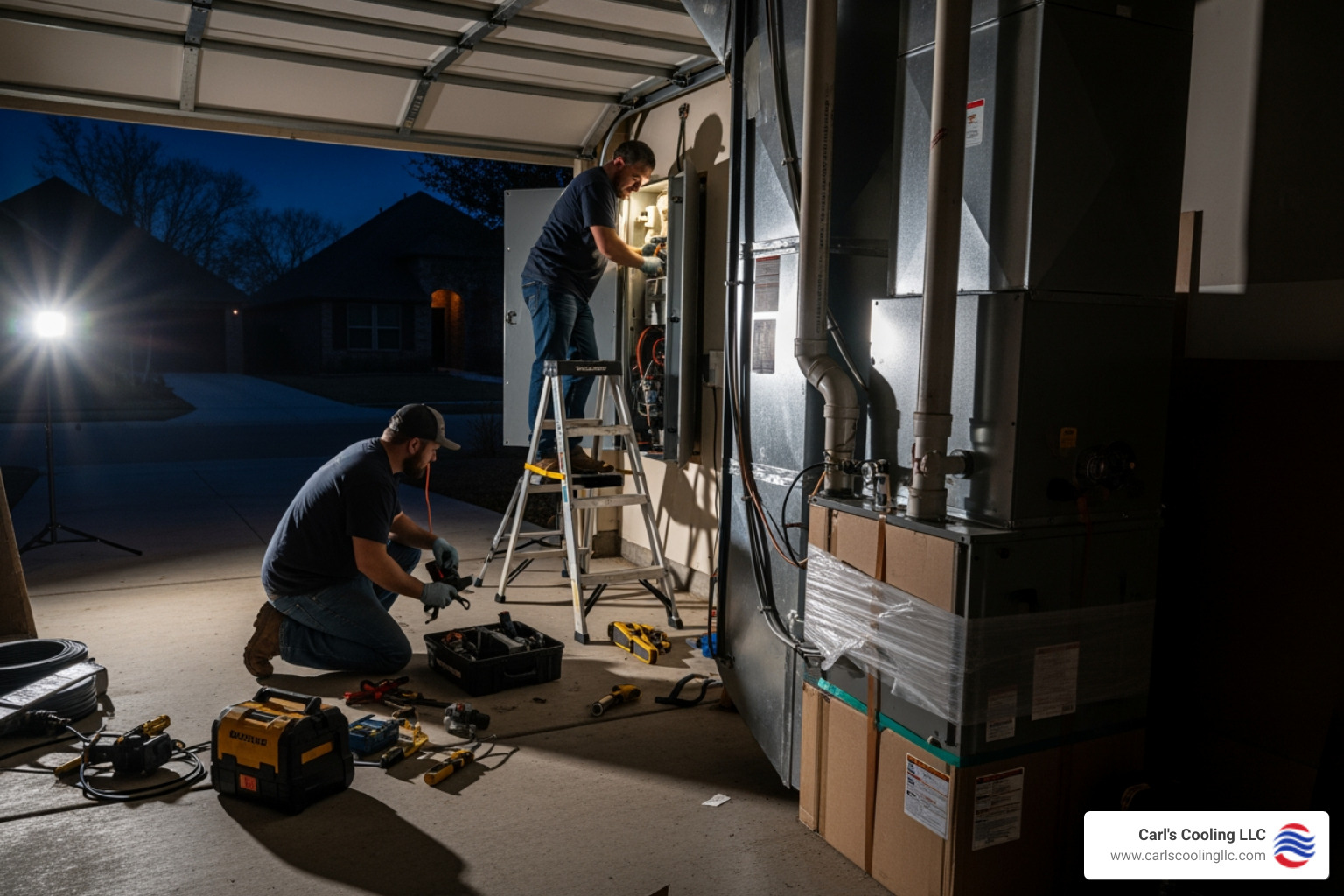Importance of Spring Maintenance
As the seasons transition from winter to spring, many homeowners and businesses look forward to the warmer weather, blossoming flowers, and outdoor activities. However, this change in season also marks an essential time to give attention to one of the most critical systems in any building—your heating, ventilation, and air conditioning (HVAC) system. Spring maintenance of HVAC systems is not just a routine task; it is vital for the efficient operation, energy savings, and longevity of the system. Neglecting this crucial step can lead to increased energy consumption, higher repair costs, and even premature system failure.
Enhancing System Efficiency and Reducing Energy Bills
One primary reason to prioritize spring maintenance for your HVAC system is to improve its overall efficiency. HVAC systems tend to accumulate dust, dirt, and debris over time, particularly in filters and coils. When air filters become clogged or dirty, they restrict airflow, causing the system to work harder to maintain the desired indoor temperature. This unnecessary strain on the system can lead to increased energy consumption, which translates into higher utility bills.
Dirty coils also hinder the system’s ability to transfer heat effectively, further reducing efficiency. During spring maintenance, professional technicians thoroughly clean or replace filters and coils, ensuring unobstructed airflow and optimal heat exchange. By maintaining these components in pristine condition, your HVAC system can operate more efficiently, ultimately saving you money on energy costs throughout the cooling season.
Preventing Costly Breakdowns and Repairs
Another critical benefit of spring HVAC maintenance is the opportunity to identify and address potential issues before they escalate into costly repairs or complete system failures. HVAC systems are complex, with numerous electrical components, refrigerant levels, and mechanical parts that can wear out or malfunction over time. With regular inspections, minor problems such as failing electrical connections, refrigerant leaks, or worn-out belts can be noticed, leading to more significant damage down the line.
During a comprehensive spring maintenance visit, technicians like those at Carl's Quality Cooling and Heating LLC thoroughly check all these elements. They inspect electrical connections, lubricate moving parts, and ensure that refrigerant levels are at the appropriate levels. They also examine the condition of the ductwork for any signs of tears or leaks, which can significantly impact the system’s efficiency. By catching these issues early, homeowners can avoid the inconvenience and high costs associated with emergency repairs or total system breakdowns in the middle of summer when the HVAC system is under its heaviest load.
Maximizing the Life of Your HVAC System
A well-maintained HVAC system will last significantly longer than one that is neglected. Regular maintenance reduces the wear and tear on critical components, helping them function properly for a more extended period. For example, refrigerant levels that are too low can cause the compressor to overheat, leading to premature failure. Electrical issues can also result in burned-out components, which may shorten the lifespan of the entire system.
By scheduling routine spring maintenance, you are investing in the long-term health of your HVAC system. Technicians will ensure that all components are operating within manufacturer specifications and make necessary adjustments to prolong the system’s operational life. In doing so, you can delay the need for a costly replacement and get the most out of your existing system.
Improving Indoor Air Quality
The condition of your HVAC system directly impacts the quality of the air inside your home or business. A system that needs to be appropriately maintained can circulate dust, allergens, and other airborne contaminants throughout the building. Clogged filters, dirty coils, and poorly maintained ductwork can exacerbate these problems, leading to poor indoor air quality and potential health issues for occupants.
During spring maintenance, HVAC professionals will replace dirty air filters, clean coils, and inspect ductwork for leaks or blockages that could compromise air quality. They may also recommend additional solutions, such as air purifiers or UV lights, to enhance the indoor environment further. Ensuring your HVAC system is clean and well-maintained can help reduce the spread of allergens and pollutants, making your indoor space healthier and more comfortable for everyone.
Ensuring Safety and Compliance
Safety is another critical aspect of HVAC maintenance that should be considered. If left unchecked, faulty electrical components or gas connections can pose serious hazards. For instance, electrical failures could result in fires, while gas leaks could lead to dangerous levels of carbon monoxide in the building. During spring maintenance, technicians will inspect electrical connections, test safety controls, and check for any gas leaks or other potential safety risks.
In addition to ensuring safety, regular maintenance can help ensure that your HVAC system remains compliant with local codes and manufacturer warranties. Many manufacturers require proof of regular maintenance to honor their warranties, so skipping these crucial inspections could void your warranty and leave you responsible for expensive repairs or replacements.
Preparing for Peak Cooling Season
Finally, spring maintenance is essential because it prepares your HVAC system for the peak demands of the summer months. As temperatures rise, your air conditioning system will need to work harder to keep your home or business cool. Ensuring that your system is in optimal condition before the cooling season begins will help it handle the increased workload without issues.
During the maintenance visit, technicians will calibrate the thermostat, test the system’s cooling performance, and ensure that all components are operating efficiently. This proactive approach helps minimize the risk of unexpected breakdowns during the hottest days of the year when your system is most needed.
Spring HVAC maintenance is not just a task to check off the to-do list; it is a critical investment in the efficiency, safety, and longevity of your system. By addressing issues such as dirty filters, clogged coils, low refrigerant levels, and torn ductwork early, you can ensure that your HVAC system operates smoothly and efficiently throughout the year. With professional services like those provided by Carl's Quality Cooling and Heating LLC, you can rest assured that your system will be thoroughly inspected and maintained, giving you peace of mind and optimal comfort. Don’t wait for an emergency—schedule your spring HVAC maintenance today and enjoy a season of uninterrupted comfort. For more information, visit our website.






